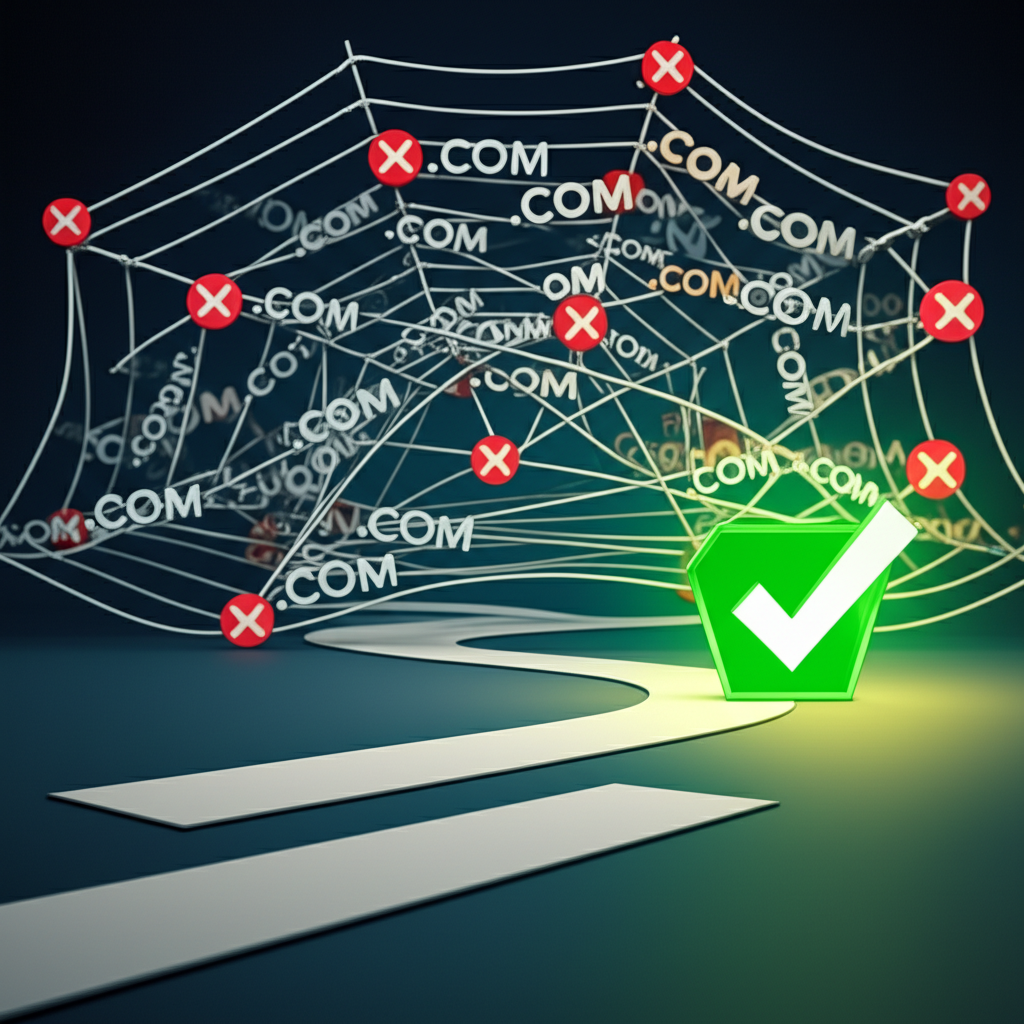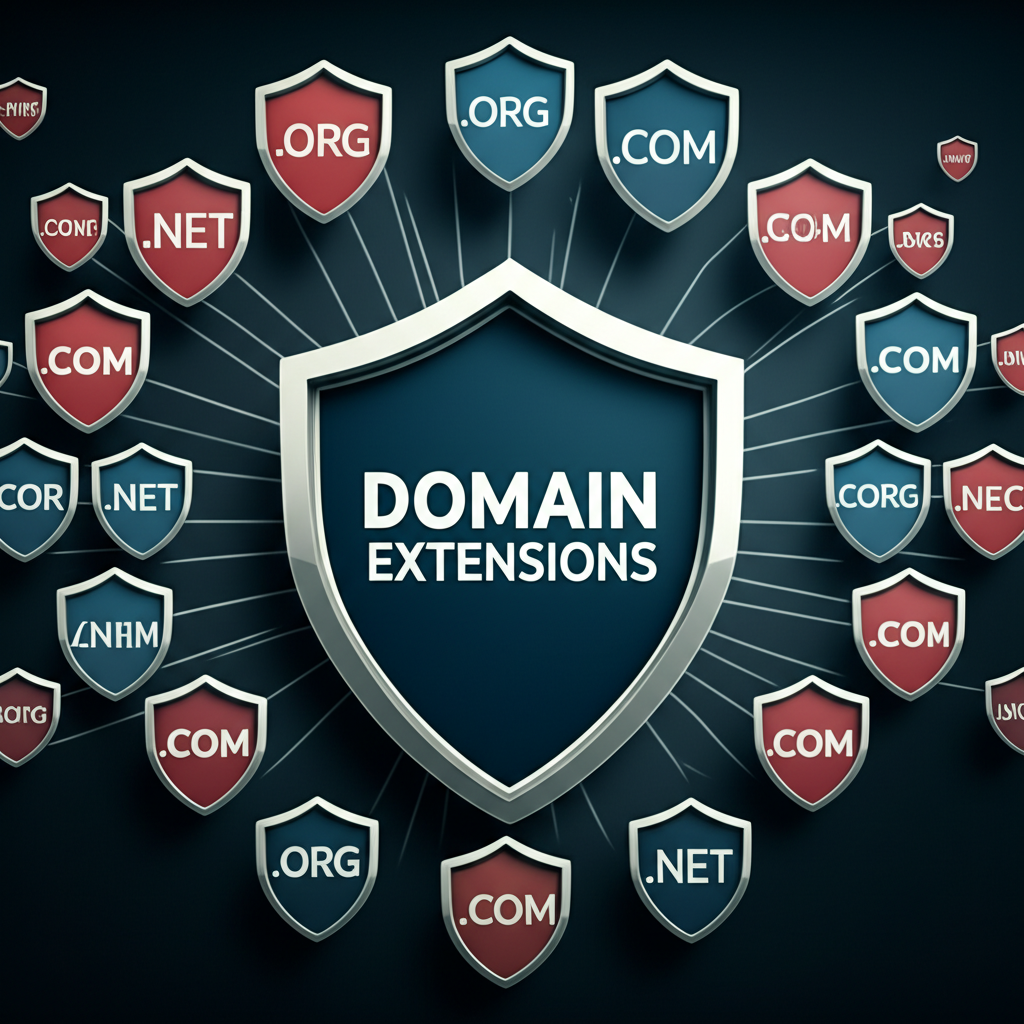- Common Domain Buying Mistakes to Steer Clear Of
- 1. Ignoring Keyword Research
- 2. Choosing the Wrong Domain Extension
- 3. Overlooking Copyright Infringement
- 4. Buying a Domain That's Too Long or Complex
- 5. Not Checking for Domain History
- Avoiding Domain Name Regret: Further Considerations
- 6. Neglecting Domain Privacy Protection
- 7. Failing to Plan for the Long Term
Domain Buying Mistakes: 7 to Avoid for Best Results
Domain buying can be a crucial step for establishing a successful online presence, whether for a business, personal brand, or online project. A well-chosen domain name can boost brand recognition, improve search engine optimization (SEO), and drive traffic to your website. However, the process can be tricky, and several common pitfalls can lead to regret and lost opportunities. Avoiding these domain buying mistakes is vital for maximizing your online success.
Common Domain Buying Mistakes to Steer Clear Of

Making the right choices when securing your domain name is a foundation for your online endeavors. Let’s delve into seven frequent domain buying mistakes and how to avoid them:
1. Ignoring Keyword Research
One of the most detrimental domain buying mistakes is neglecting keyword research. Keywords relevant to your niche or industry can significantly impact your website’s visibility in search engine results. Before purchasing a domain, conduct thorough keyword research using tools like Google Keyword Planner, Ahrefs, or SEMrush. Identify relevant keywords with decent search volume and incorporate them into your domain name where appropriate. This strategic approach can enhance your search engine ranking and attract organic traffic.
2. Choosing the Wrong Domain Extension
While `.com` remains the most popular and recognized domain extension, other options like `.net`, `.org`, `.co`, and even niche-specific extensions exist. Selecting the right extension depends on your website’s purpose and target audience. For businesses, `.com` is generally preferred for its credibility and widespread recognition. Non-profits might opt for `.org`, while tech companies might consider `.tech`. Carefully consider your target audience and the image you want to project when choosing a domain extension.
3. Overlooking Copyright Infringement
A seemingly harmless domain name could land you in legal trouble if it infringes on existing trademarks or copyrights. Before settling on a domain, conduct a thorough trademark search to ensure it doesn’t violate any existing intellectual property rights. Ignoring this crucial step could result in legal disputes, forcing you to relinquish your domain and potentially face financial penalties. Tools like Trademarkia and USPTO can help you check for existing trademarks.
4. Buying a Domain That’s Too Long or Complex
A concise, memorable domain name is essential for brand recognition and ease of use. Avoid lengthy, complex domain names that are difficult to remember or type. Ideally, your domain should be short, easy to spell, and pronounceable. This makes it easier for users to recall and share your website address, contributing to increased traffic and brand awareness.
5. Not Checking for Domain History
A domain name with a negative history, such as previous involvement in spam or blacklisting, can negatively impact your website’s reputation and search engine rankings. Before purchasing a domain, use tools like Wayback Machine to check its history and ensure it doesn’t have a tainted past. This proactive approach can save you from inheriting problems associated with a previously owned domain.
Avoiding Domain Name Regret: Further Considerations
While the above points cover common pitfalls, there are additional factors to consider:
6. Neglecting Domain Privacy Protection
Domain privacy protection shields your personal information, such as your name, address, and phone number, from being publicly accessible in WHOIS directories. Without this protection, your information is exposed to spammers, marketers, and potentially malicious actors. Investing in domain privacy protection is a small price to pay for safeguarding your personal information and preventing unwanted solicitations.
7. Failing to Plan for the Long Term
Choosing a domain name is a long-term investment. Avoid selecting a domain name tied to a specific trend or fleeting interest that may become irrelevant in the future. Think about your long-term goals and choose a domain name that reflects your brand’s identity and can adapt to future changes. This strategic foresight can save you the hassle and expense of rebranding and acquiring a new domain later on.
By avoiding these common domain buying mistakes and carefully considering your options, you can secure a valuable asset that contributes to your online success. A well-chosen domain name can be a powerful tool for building brand recognition, driving traffic, and achieving your online objectives. Take the time to research, plan, and make informed decisions when purchasing your domain, and you’ll be well on your way to establishing a strong online presence.















Leave a Reply